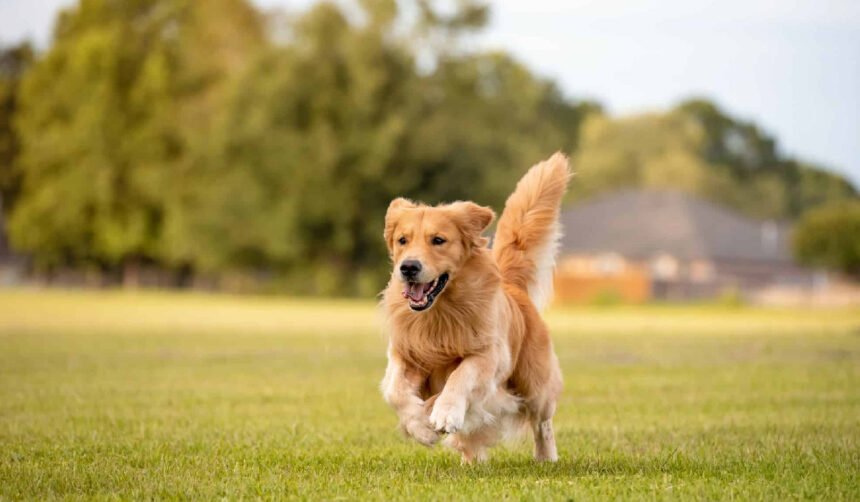Introduction
Raising a puppy is one of the most fulfilling journeys a pet parent can embark on. It’s about much more than feeding schedules or basic training — it’s a time of bonding, emotional learning, and social development. This is where the Swedish concept of Valplekar, meaning “puppy play,” becomes invaluable. But Valplekar isn’t just for animal lovers. It’s also an Indian surname rich with cultural heritage. The duality of the word makes it especially interesting — one side nurturing young dogs into well-adjusted companions, the other preserving a legacy of Indian roots and regional identity. This article explores both worlds in detail: what Valplekar means in puppyhood, and what it means across generations as a family name.
What Is Valplekar?
Valplekar is a term with a beautiful double life. In Swedish, it means “puppy play” — a vital part of a young dog’s early development that shapes its future behavior, emotional health, and bond with humans. At the same time, Valplekar is also a culturally significant Indian surname, most likely rooted in regions like Maharashtra or Goa, carrying with it stories of place, ancestry, and identity. This rich, multi-layered term represents growth, connection, and heritage — whether in the joyful leaps of a puppy or in the long-standing traditions of Indian families.
Valplekar as Puppy Play – The Swedish Concept Explained
What Does Valplekar Mean in Sweden?
In the Swedish language, the word Valplekar is derived from two roots: “valp” meaning puppy, and “lekar” meaning games or play. Combined, it refers to the essential playtime activities young puppies engage in — both structured and spontaneous — that are crucial to their social, emotional, and physical development. Valplekar is more than just a term; it’s an integral part of every reputable dog trainer’s guidebook. It represents the understanding that puppies learn through doing — and play is their primary language for exploration, communication, and behavioral growth.
Why Play Is Essential in Puppyhood
Much like human children, puppies use play to make sense of the world around them. Through the practice of Valplekar, they build the foundation for future interaction, resilience, and adaptability. This play includes mimicking behavior, experimenting with vocalizations, gauging reactions, and understanding cause and effect. It teaches a puppy what’s okay and what isn’t — not through scolding, but through fun, experience-based learning. When implemented consciously, Valplekar forms the bedrock of a dog’s lifelong temperament, making it easier to train, socialize, and live harmoniously in a human household.
The Four Core Benefits of Valplekar for Puppies
1. Socialization with Dogs and Humans
One of the most critical phases of puppyhood is socialization, and Valplekar is central to that process. Play introduces a puppy to new dogs, humans, and environments in a low-stress, engaging way. When puppies play with littermates or other dogs, they learn the rules of respectful interaction — such as bite inhibition, non-aggressive engagement, and reading body language. Similarly, human-guided play helps them trust and understand people, becoming more receptive to training and affection. Social play during this stage reduces fear-based reactions in adulthood and builds confident, friendly dogs.
2. Mental Stimulation and Enrichment
Valplekar isn’t just about running around and burning energy — it also stimulates a puppy’s mind. Puppies are naturally curious, and mentally challenging play taps into their problem-solving abilities. Puzzle toys, scent games, and even simple hide-and-seek activities keep their brains active and sharp. This kind of stimulation is essential for preventing boredom-related behavioral issues like chewing, barking, or digging. In other words, a mentally enriched puppy is a happy and well-behaved one.
3. Physical Growth and Coordination
Physical play is vital to helping puppies develop strong muscles, healthy joints, and proper motor skills. Activities like fetch, tug-of-war, climbing, and obstacle courses enhance stamina, balance, and body awareness. In the early weeks and months, Valplekar helps puppies figure out how their limbs move, how fast they can run, and how to land on their paws. Regular physical play leads to healthier development, reduces the risk of injury, and promotes an active lifestyle from a young age.
4. Teaching Boundaries and Bite Inhibition
Valplekar is also where puppies learn self-control. They figure out what’s too rough and when to stop, especially during social play with other dogs. For example, if one puppy bites too hard, the other may yelp and stop playing — teaching the first pup that the behavior was unacceptable. This learning translates to human interaction, helping puppies understand gentle mouth behavior and emotional regulation. It’s one of the most natural and effective ways to instill manners and discipline without punishment.
Types of Valplekar: Different Ways Puppies Learn Through Play
Structured Play
Structured play is when the owner leads the activity with purpose. These games include fetch, agility practice, training sessions disguised as play, or learning commands with toys as rewards. Structured play builds discipline and reinforces obedience, while still allowing the dog to enjoy the experience. It’s a great way to bond with your puppy and teach them life-long behaviors in a positive environment.
Unstructured or Free Play
Unstructured play allows a puppy to explore their surroundings and make choices independently. Whether they’re playing with another dog or sniffing through a garden, unstructured play supports creative thinking, stress reduction, and self-assurance. It’s essential for helping the puppy develop autonomy and confidence in unfamiliar situations. Supervised free play in a safe environment gives puppies the chance to learn at their own pace.
Interactive Play with Humans
Nothing builds trust faster than play between a puppy and its owner. From tug games to teaching tricks, interactive play enhances the emotional bond and builds communication. The puppy learns to read your cues and voice tones, making future training smoother. More importantly, it establishes a joyful, respectful relationship that becomes the foundation for a lifetime of loyalty and companionship.
Beyond Play – Emotional and Long-Term Benefits of Valplekar
Emotional Security and Reduced Anxiety
Puppies that engage in regular Valplekar are emotionally balanced. Play acts as an emotional outlet, helping them process excitement, stress, or fear. It prevents nervous energy from turning into problematic behavior. Especially for puppies transitioning into a new home, play creates routine and safety, helping them settle in quicker and develop trust.
Better Behavior in Adulthood
The lessons learned during Valplekar sessions carry into adulthood. Dogs who had positive play experiences as puppies are less likely to exhibit aggression, reactivity, or anxiety. They are also easier to train and more responsive to their owners. Proper early play reduces the need for corrective measures later, creating a well-rounded pet with minimal behavior issues.
Human-Puppy Relationship Building
Playing with your puppy isn’t just fun — it’s foundational. It builds mutual respect, teaches boundaries, and creates positive associations. When a puppy trusts its human, it’s more likely to follow commands, listen, and stay calm in unfamiliar situations. Valplekar fosters this relationship in a natural, stress-free way.
Valplekar as a Surname – A Cultural Insight
Regional Roots and Etymology
In India, surnames often tell stories — of place, profession, or community. The name Valplekar likely stems from Western Indian regions like Goa, Maharashtra, or Karnataka, where the suffix “-kar” is common in Marathi and Konkani. The suffix denotes origin or belonging, so “Valplekar” may have originally referred to someone from a place called Valple or a similar locality. Over time, it became a hereditary surname passed down through generations.
Surnames as Cultural Heritage
Surnames like Valplekar carry immense cultural significance. They often indicate caste, community, or geographic background. While modern India is moving away from rigid identity systems, these surnames continue to preserve family heritage and social belonging. They are more than just names — they’re ancestral GPS markers that help families trace their roots and identity.
The Socio-Cultural Significance of the Name “Valplekar”
Historical Connections
Historically, surnames were used to preserve information about family trades, land ownership, or social status. A name like Valplekar may have once indicated someone from a farming or landowning family in a specific village. These identifiers were essential in smaller communities where lineage mattered. Today, they serve as proud reminders of heritage.
Migration and the Global Spread
With increasing migration, the Valplekar name has likely traveled across the globe. From the Indian diaspora in the UK and US to Gulf countries and Canada, individuals with this surname are keeping their roots alive abroad. It serves as a reminder of where they came from, even as they embrace new cultures.
Importance in Genealogy and Family Stories
For many families, surnames like Valplekar are central to oral history. They preserve stories of migration, change, and resilience. Tracing a surname can lead to discovering ancestral villages, family professions, or long-lost relatives. In today’s era of digital genealogy, such names are essential search keys to unlock family archives.
Language and Linguistic Analysis of “Valplekar”
The linguistic structure of Valplekar is deeply tied to Marathi and Konkani. The suffix “-kar” means “from” — similar to how “-son” in English once meant “son of.” The root word “Valple” might be a village, estate, or historic area. This naming convention is still common in Goa and Maharashtra. Linguistically, the name is simple, phonetic, and unique — making it easy to remember and culturally rich.
Valplekar in Modern Identity
Why Traditional Names Still Matter
In today’s globalized world, traditional surnames like Valplekar stand out. They add character in resumes, legal documents, and cultural spaces. While many people opt to simplify or westernize their names, keeping a surname like Valplekar showcases authenticity and pride in one’s heritage.
Digital Presence and Revival of Surnames
Social media and ancestry platforms have revived interest in surnames. Many young people are now curious about their roots, and a unique name like Valplekar becomes a digital identity marker. It’s both personal and historical, linking generations even through screens.
Final Thoughts
Whether you’re guiding a puppy through its earliest games or exploring the legacy of your family name, Valplekar is a word rooted in growth, connection, and tradition. On one side, it’s the playful dance of learning, bonding, and confidence-building for dogs. On the other hand, it’s the long-standing pride of regional identity, language, and ancestry. Understanding both meanings enriches our awareness of how words can carry joy, responsibility, and history. In every way, Valplekar invites us to engage with our pets, with our past, and with the power of names.
FAQs
1: What does Valplekar mean?
Valplekar has two meanings. In Swedish, it means “puppy play,” which refers to the important activities puppies use to learn, socialize, and grow. In India, Valplekar is also a traditional surname linked to regional heritage, usually from Maharashtra, Goa, or Karnataka.
2: Why is Valplekar important for puppies?
Valplekar is important for puppies because it helps them build social skills, learn boundaries, develop strong muscles, and gain confidence. Puppy play also reduces stress, improves behavior, and strengthens the bond between the puppy and its owner.
3: What activities are included in Valplekar for puppies?
Valplekar includes activities like fetch, tug‑of‑war, social play with other dogs, puzzle toys, exploring outdoors, and simple training games. These activities support mental stimulation, physical growth, and emotional development.
4: What is the origin of the surname Valplekar?
The surname Valplekar likely comes from Western India, especially Maharashtra, Goa, or Karnataka. The suffix “‑kar” means “from” in Marathi and Konkani, so Valplekar originally referred to a family from a place called Valple or a similar region.
5: Is Valplekar a common name?
Valplekar is not a very common name, but it is meaningful within the families who use it. It represents heritage, cultural identity, and regional roots, especially among Indian communities and their diaspora around the world.
For More Information Visit Celebritymagazine














